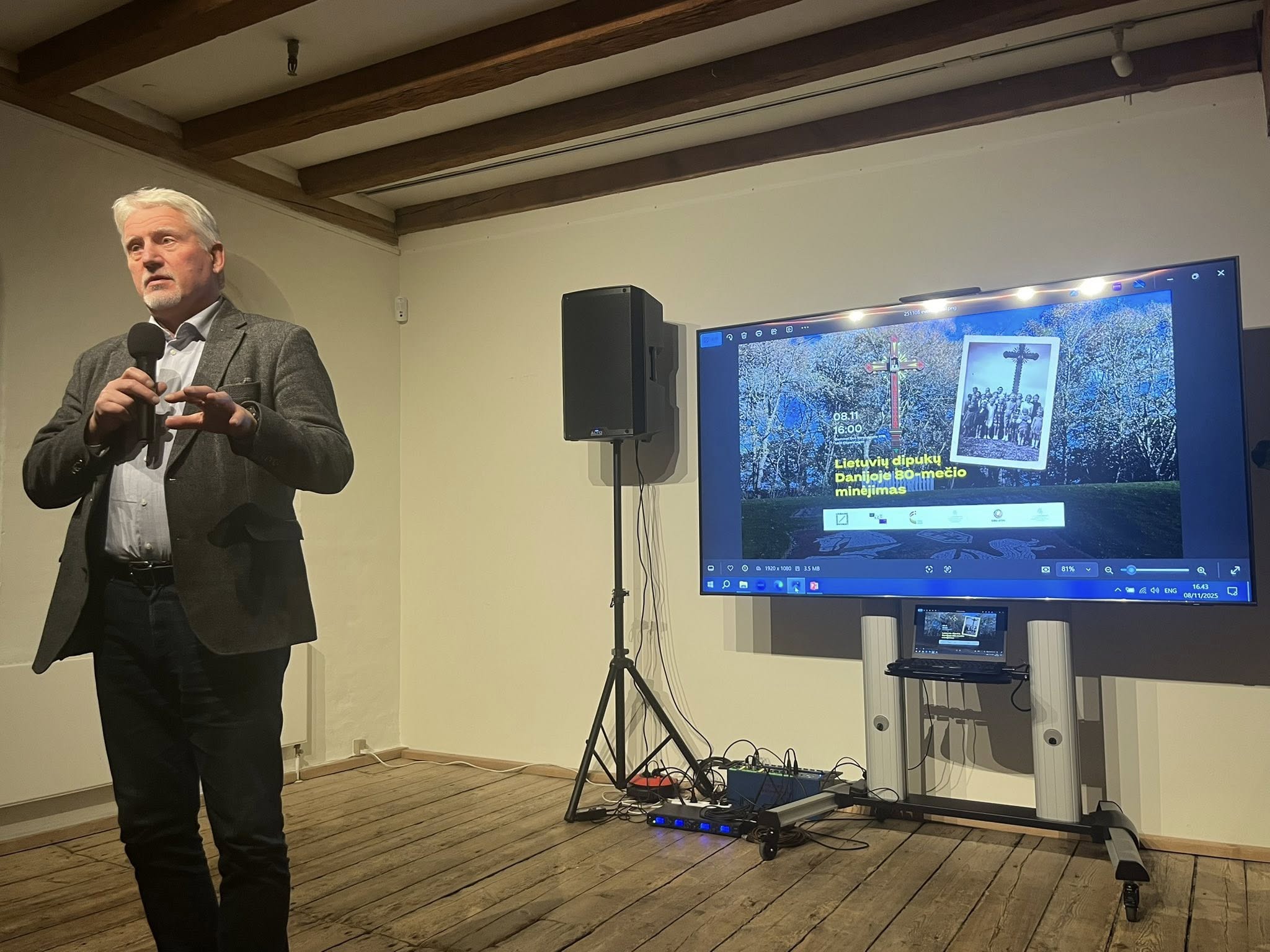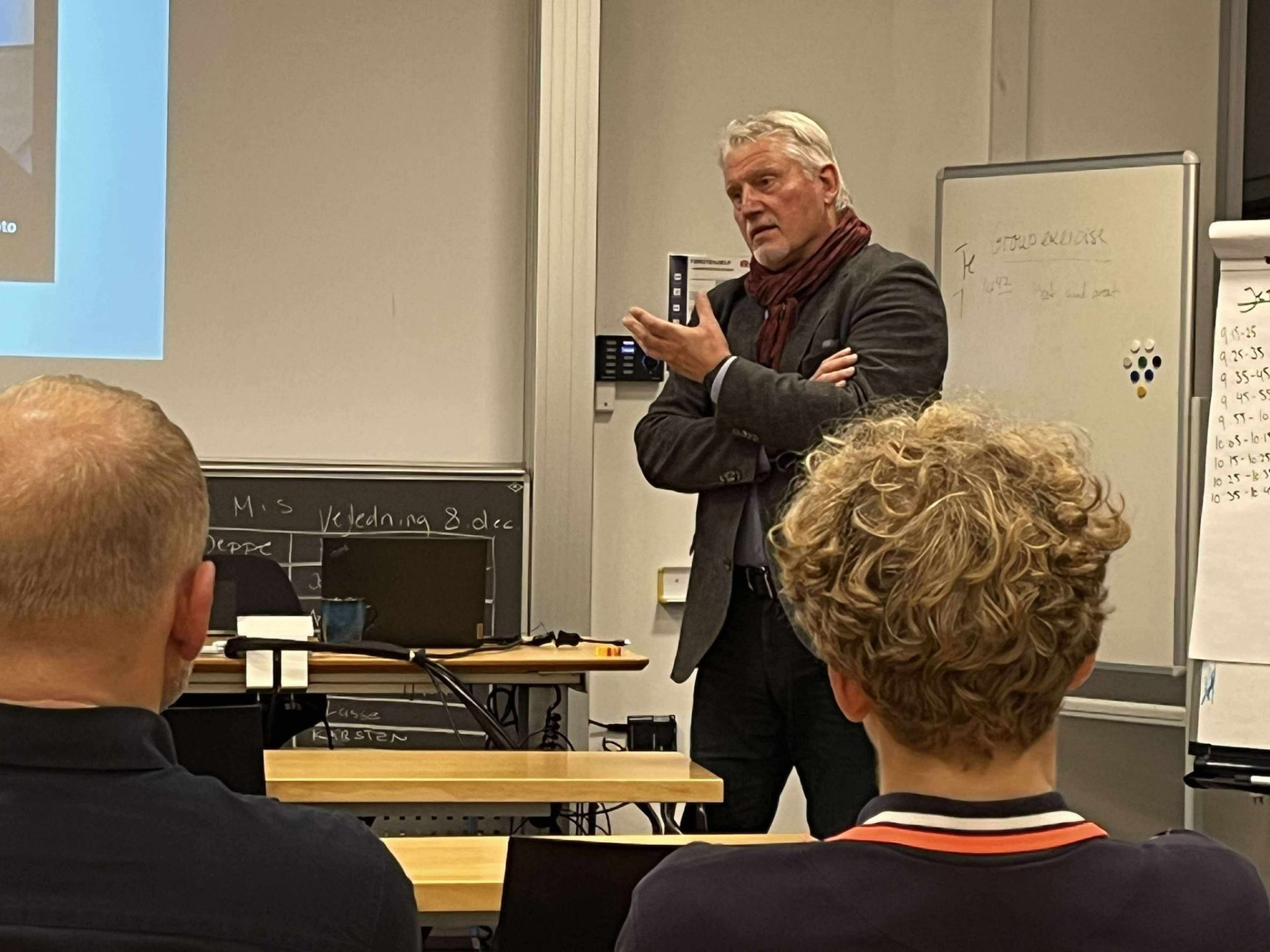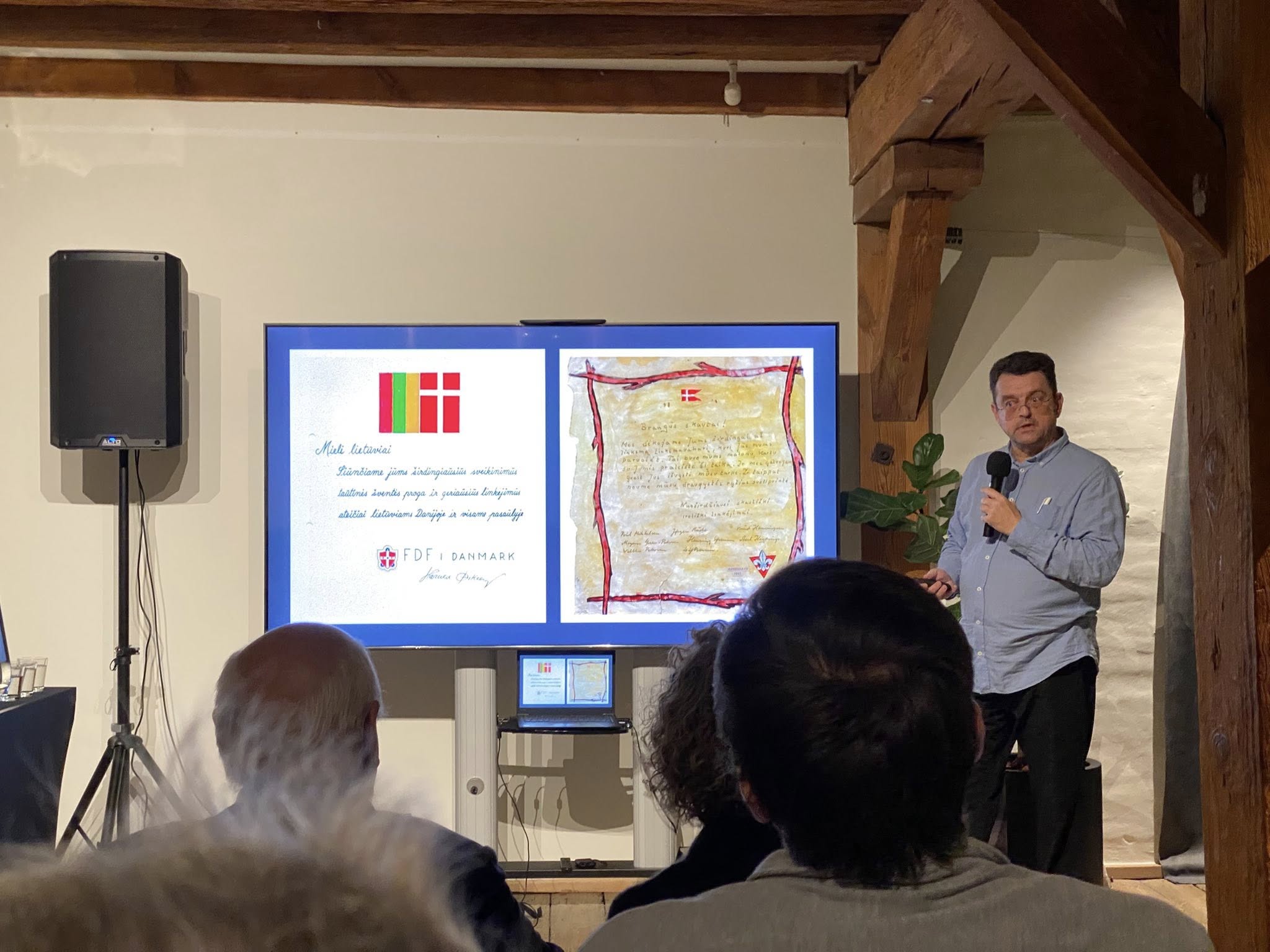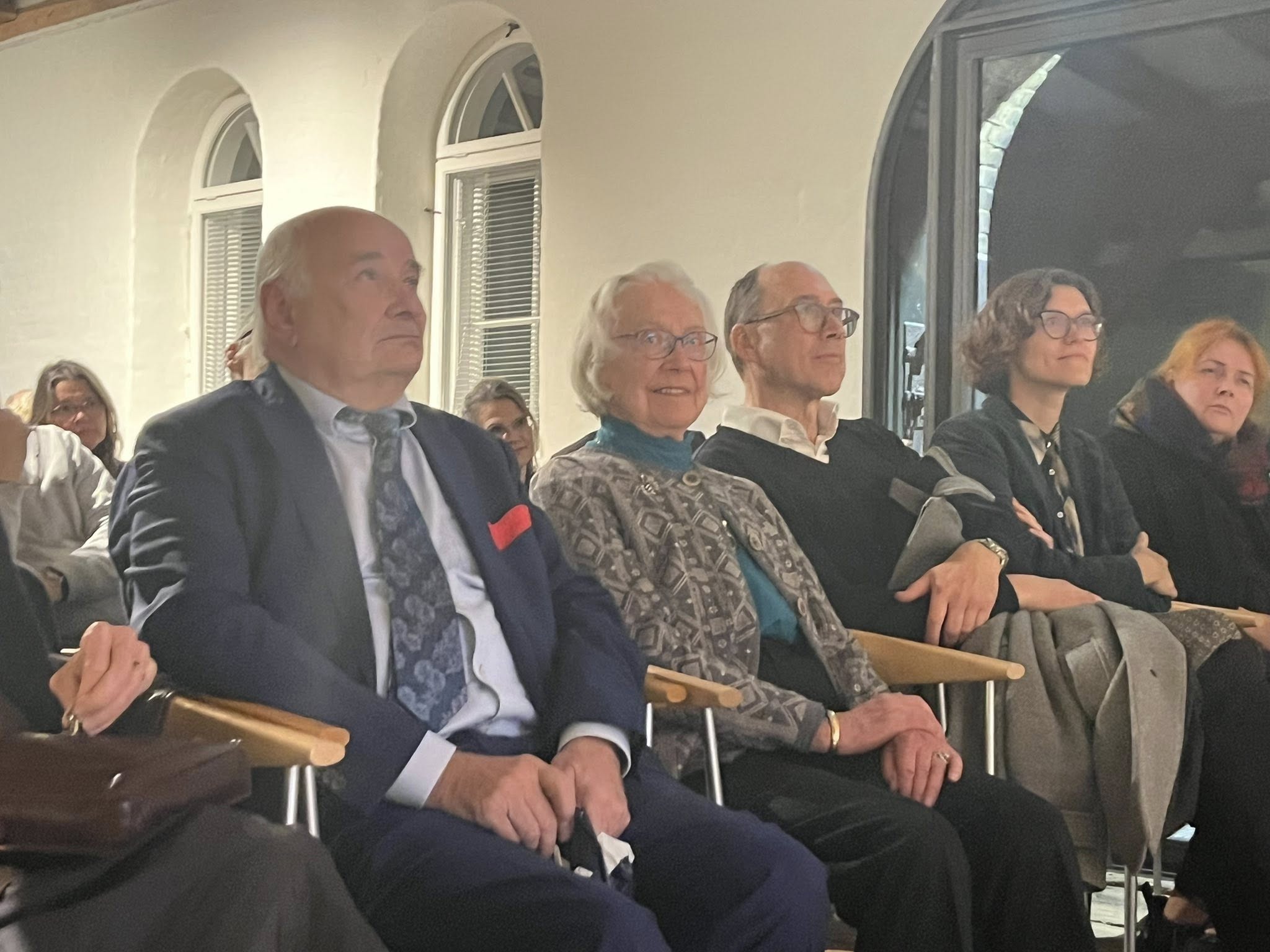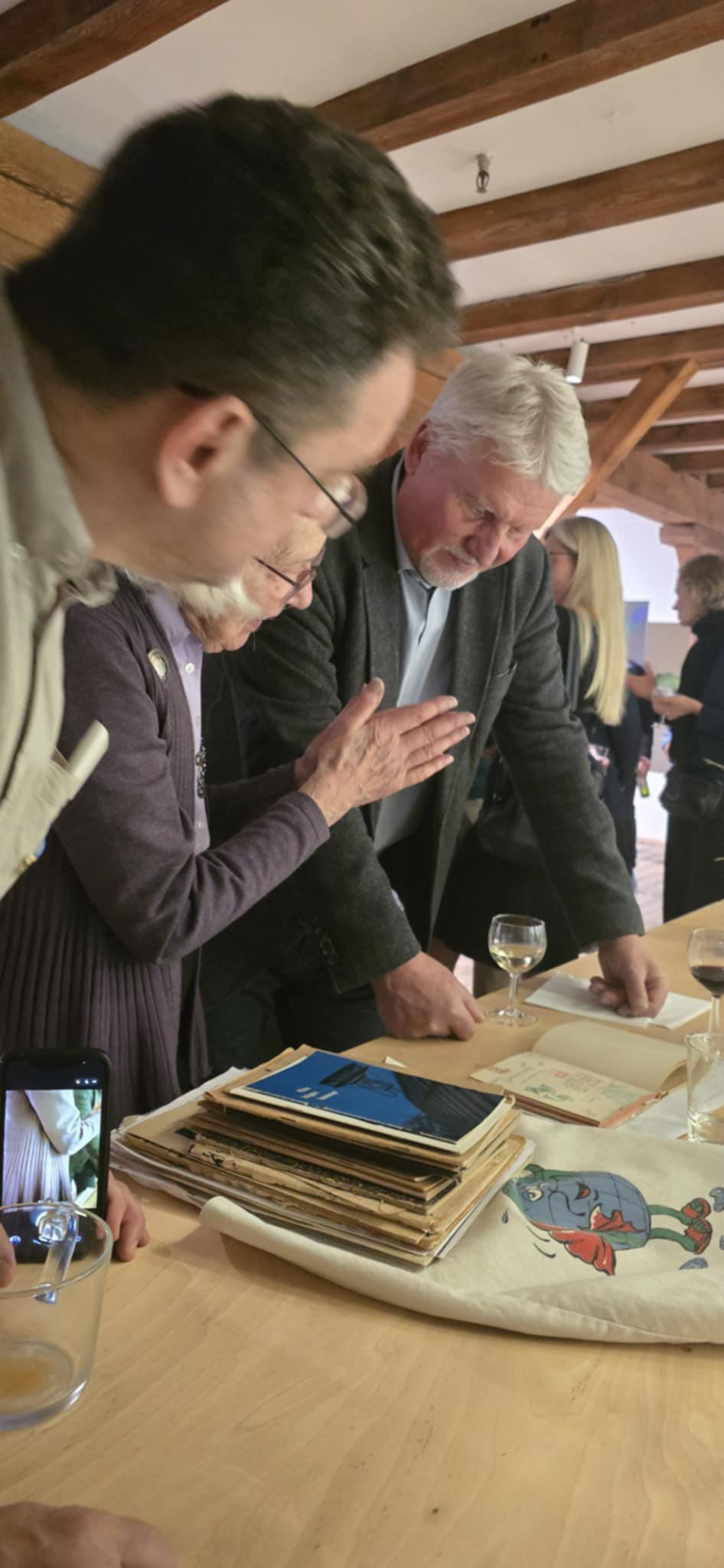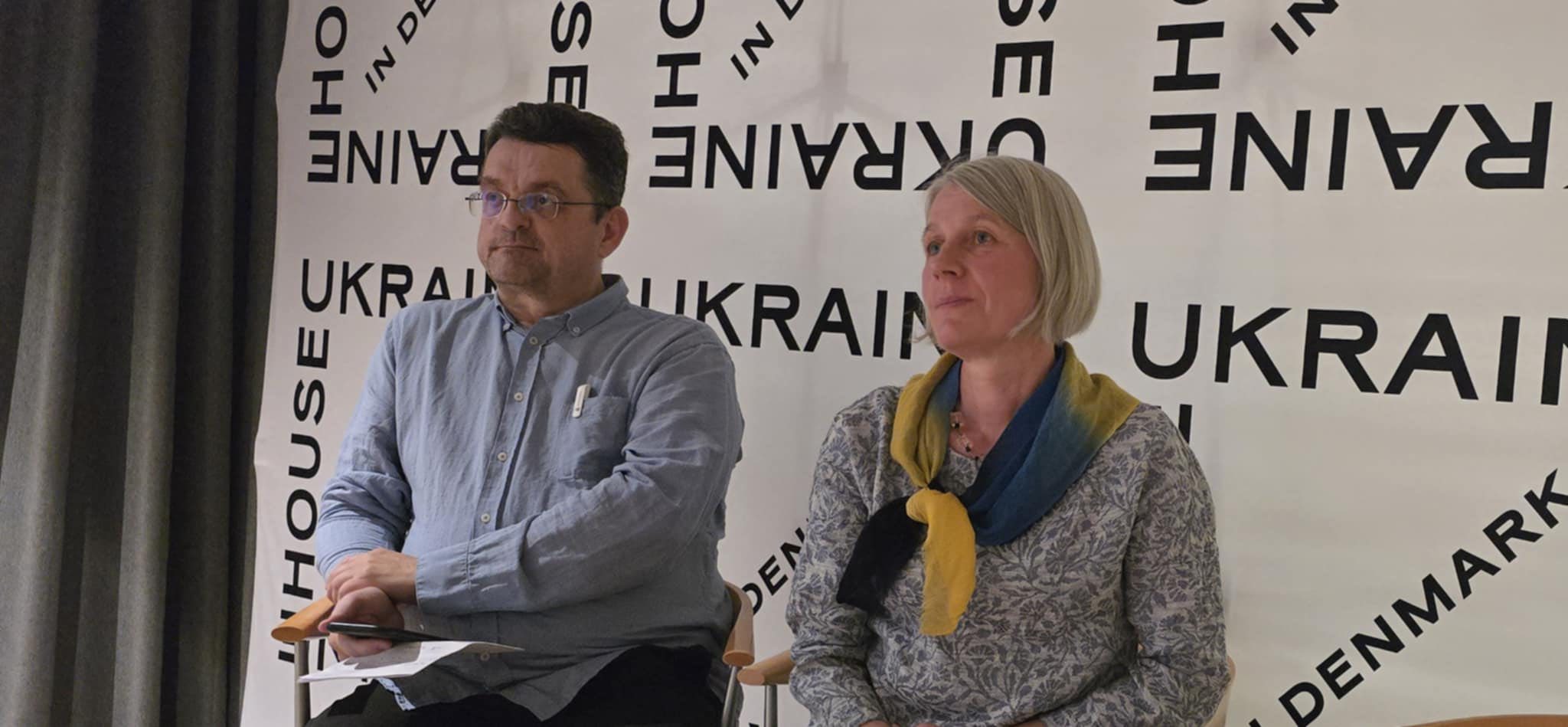80th Anniversary Commemorations of Lithuanian Displaced Persons in Denmark
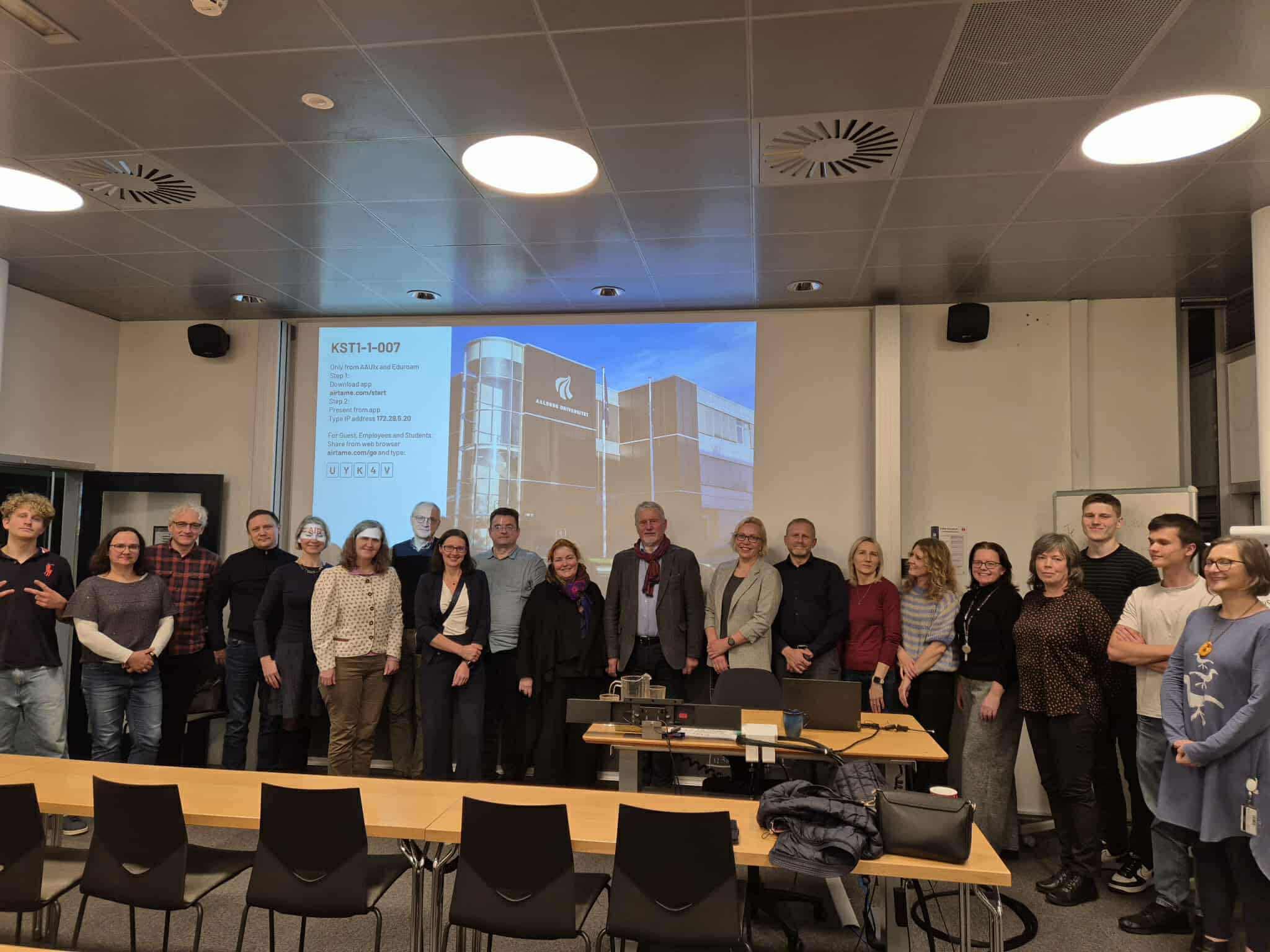
This year marks the 80th anniversary since nearly 3,000 Lithuanian displaced persons arrived in Denmark. At the end of the Second World War, fleeing the war and the Red Army, about 250,000 people sought refuge in Denmark. Among them were some 3,000 Lithuanians. Even after experiencing immense trauma, Lithuanians who settled in Denmark focused first on children’s education, organized a rich cultural and sports life, and published newspapers.
To commemorate the 80th anniversary, the Danish Lithuanian Community (DLB) organized a series of historical memory events.
The first event took place on the evening of November 4 at Aalborg University in the cozy setting of the Aalborg Lithuanian Society. Presentations were given by Professor Egidijus Aleksandravičius, Director of the Lithuanian Emigration Institute at Vytautas Magnus University, who arrived from Lithuania, and by Dixie Henri le Févre Simonsen, who researches the historical traces of Lithuanians in Denmark. Discussions and conversations were held with those Second World War refugees who still live in Denmark.
The program continued on the weekend of November 7–8 in Copenhagen, at the Ukraine House in Denmark, where two events dedicated to the 80th anniversary of Lithuanian displaced persons in Denmark took place.
On November 7, the Danish Lithuanian Society invited the public to an event entitled ‘Commemorating 80 years since the arrival of Lithuanian displaced persons in Denmark.’ Not only Lithuanians living in Denmark but also many Danes and foreigners living in Denmark, who gathered for the English-language anniversary event, were introduced to the vibrant cultural life, book publishing, and other historical heritage created by Lithuanians who had fled Soviet occupation. Without any institutional support, they collected and organized funds from fellow Lithuanians scattered in exile.
Professor Egidijus Aleksandravičius of the VMU Lithuanian Emigration Institute briefly introduced the history of the generation of ‘poets and soldiers,’ who emerged under the pressure of historical cataclysms and fled Soviet occupation: the incredible creativity and organizational capacity of this Lithuanian diaspora generation in preserving and passing on its identity and language to younger generations, as well as its political activism and support for the struggle for Lithuanian independence. Dixie Henri le Févre Simonsen, who researches Lithuanian traces in Denmark, presented in detail the history of Lithuanian displaced persons in Denmark. Attendees could view a geographical map of the camps, rich archival material, preserved photographs, and Lithuanian newspapers published in the camps. Algirdas Tamašauskas, who arrived in Denmark at the age of just five, also shared his memories of life in the camps and in Denmark. The biggest surprise and emotional highlight of the event was the gathering of descendants—sons and daughters—of Lithuanian displaced persons in Denmark, discovered and brought together by Dixie Henri le Févre Simonsen. Not only those living near Copenhagen attended, but also children of Lithuanian displaced persons from Jutland. The meeting of these Danish-speaking children of Lithuanians, their desire to connect, communicate, and join the Danish Lithuanian Community, was deeply moving. There is hope that this meeting of descendants will develop into a new DLB project.
On November 8, a jubilee event dedicated to the 80th anniversary of Lithuanian displaced persons in Denmark was held for a Lithuanian-speaking audience. At this event, the presentations by Prof. Egidijus Aleksandravičius and Dixie Henri le Févre Simonsen were supplemented with a little-known story about the last Lithuanian ‘displaced person,’ Stasė Norkutė, and her leap into the free world from a Soviet fishing vessel near the Faroe Islands. This presentation was delivered by bibliographer and genealogist Rūta Dokšienė, a member of the Danish Lithuanian Riflemen’s unit, who came from Jutland.
During the event, Livija Kaufmanaitė Klāns Kovalevskis—who celebrated her honorable 90th birthday this summer—was also honored. She received a gift from the DLB and a certificate of appreciation from the Lithuanian World Community for her contribution to unity, her active involvement, her patronage, and for preserving both Lithuanian and her native Latvian language over long decades despite limited ties to the Lithuanian world.
DLB chairwoman Reda Mieldažytė also presented a Lithuanian World Community certificate of appreciation to long-time DLB treasurer Artūras Maslauskas for fostering community spirit and volunteerism among Lithuanians in Denmark, as well as for his highly professional and responsible management of the DLB treasury and archives.
The jubilee events were organized by the Danish Lithuanian Society in cooperation with the Ukraine House in Denmark, the Lithuanian Culture Institute, the Cultural Attaché of the Republic of Lithuania in Sweden, Finland, and Denmark, and the Embassy of the Republic of Lithuania in Copenhagen. The project was partially funded by the Global Lithuania Department of the Ministry of Foreign Affairs of the Republic of Lithuania.
Photos: Danish Lithuanian Community.
